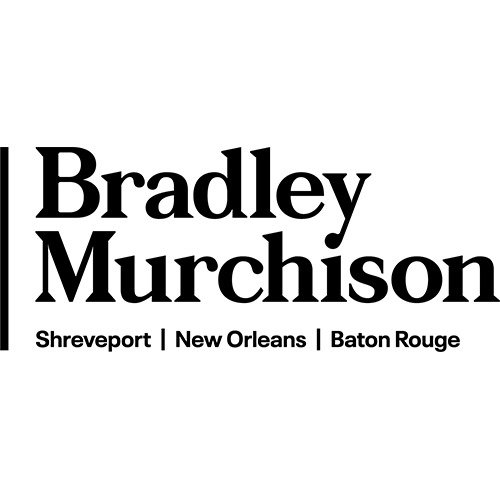Best Banking & Finance Lawyers in New Orleans
Share your needs with us, get contacted by law firms.
Free. Takes 2 min.
List of the best lawyers in New Orleans, United States
United States Banking & Finance Legal Articles
Browse our 1 legal article about Banking & Finance in United States written by expert lawyers.
- United States Student Loan Repayment 2026: Post-SAVE Options
- By 2026, most federal borrowers will be in long-term repayment with interest fully accruing again, and several "temporary" relief rules are set to expire. If legal or political attacks weaken SAVE, the original Income-Based Repayment (IBR) plan is likely the most durable, legally grounded income-driven repayment (IDR) option still available.... Read more →
About Banking & Finance Law in New Orleans, United States
Financial and banking law in New Orleans, like in most parts of the United States, regulates the operation and governance of banks, credit unions, loan processing companies, and other financial institutions. These laws are in place not only to protect the institutions themselves but also to safeguard consumers, encourage fair business practices, and ensure financial stability in the region. Notable laws include the Dodd-Frank Wall Street Reform and Consumer Protection Act, the Gramm-Leach-Bliley Act, and the Fair Credit Reporting Act, along with a variety of state and local regulations.
Why You May Need a Lawyer
Legal advice in Banking & Finance is often required in a variety of situations. If you're starting a new business and need help securing loans, establishing terms for investors, or ensuring regulatory compliance, a lawyer can be invaluable. Individuals may also need a lawyer for personal finance issues, such as dealing with complex mortgages or credit disputes. Other situations can include quantitative risk analysis, bankruptcy proceedings, commercial lending, mergers and acquisitions, and investment planning.
Local Laws Overview
New Orleans-specific Banking & Finance laws largely mirror those at the federal level, but there are specific parochial laws that are unique to Louisiana. These are primarily present under the Louisiana Civil Code and Louisiana Commercial Laws. Notably, Louisiana follows a somewhat unique legal system known as "civil law," which has roots in French and Spanish law unlike most other states that follow English-derived "common law". This can lead to a different interpretation of financial legislation and underscores the importance of local legal guidance.
Frequently Asked Questions
What is the usury law in Louisiana?
Usury laws regulate the amount of interest that can be charged on a loan. In Louisiana, the general legal interest rate is 7% but the parties can agree to a rate up to 12%. However, there are exceptions for certain types of loans.
Is New Orleans under a community property regime?
Yes, like the rest of Louisiana, New Orleans follows a community property regime. This means that all property, including financial assets acquired by either spouse during their marriage, are considered jointly owned.
Are there local laws affecting banking operations in New Orleans?
Yes, in addition to state and federal legislation, New Orleans has ordinances and regulations that can impact banking operations. It's important to consult a local attorney to understand how these might affect you or your business.
What is the role of the Louisiana Office of Financial Institutions?
The Louisiana Office of Financial Institutions is responsible for supervising and regulating state-chartered banks and other financial institutions, ensuring compliance with relevant laws and regulations.
Should I engage a local attorney for my financial law concerns?
Yes, given Louisiana's use of civil law and local ordinances and regulations in New Orleans, it is advisable to seek local legal advice. They will have a better understanding of how the state's unique legal system may affect your situation.
Additional Resources
Some additional resources for understanding banking and finance law in New Orleans include:
- The Louisiana State Bar Association - Provides resources and a referral service to find licensed attorneys in New Orleans.
- The Louisiana Office of Financial Institutions - Provides information on state-specific laws and regulations plus offers consumer resources.
- The Louisiana Law Library - Offers access to state laws, including those regarding banking and finance.
Next Steps
If you need legal assistance with banking and finance in New Orleans, your first step should be to engage a local attorney who specializes in this area of law. The Louisiana State Bar Association can be a good starting point. Further, it may also be beneficial to research and familiarize yourself with the basic tenets of the applicable laws and regulations.
Lawzana helps you find the best lawyers and law firms in New Orleans through a curated and pre-screened list of qualified legal professionals. Our platform offers rankings and detailed profiles of attorneys and law firms, allowing you to compare based on practice areas, including Banking & Finance, experience, and client feedback.
Each profile includes a description of the firm's areas of practice, client reviews, team members and partners, year of establishment, spoken languages, office locations, contact information, social media presence, and any published articles or resources. Most firms on our platform speak English and are experienced in both local and international legal matters.
Get a quote from top-rated law firms in New Orleans, United States — quickly, securely, and without unnecessary hassle.
Disclaimer:
The information provided on this page is for general informational purposes only and does not constitute legal advice. While we strive to ensure the accuracy and relevance of the content, legal information may change over time, and interpretations of the law can vary. You should always consult with a qualified legal professional for advice specific to your situation.
We disclaim all liability for actions taken or not taken based on the content of this page. If you believe any information is incorrect or outdated, please contact us, and we will review and update it where appropriate.
Browse banking & finance law firms by service in New Orleans, United States
New Orleans, United States Attorneys in related practice areas.













